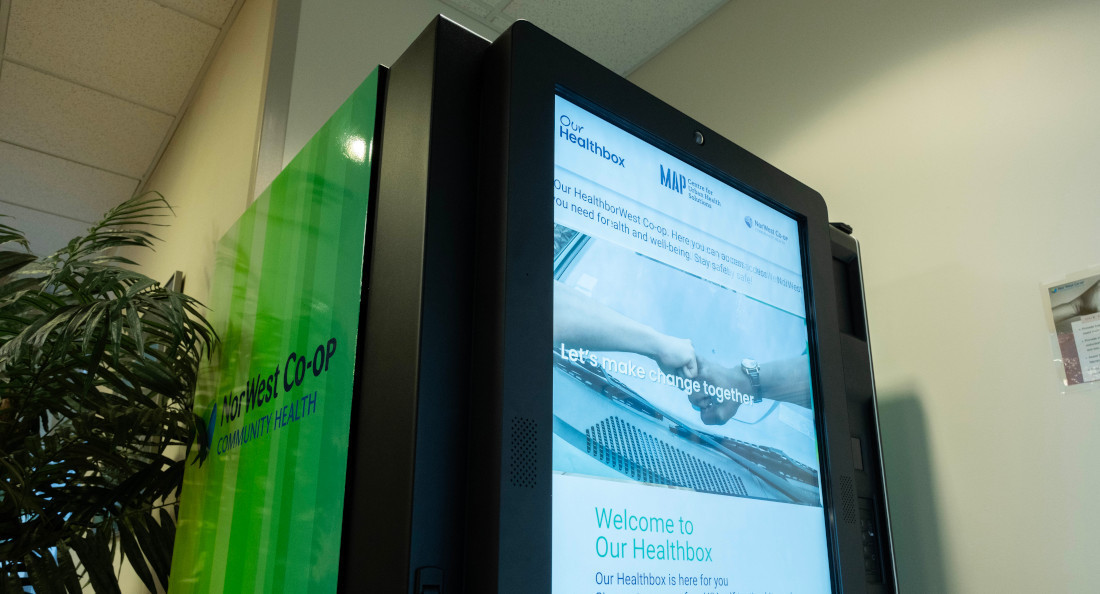Harm reduction tools, safe consumption sites lower crime
NorWest vending machine removes barriers to access
A new harm-reduction vending machine is now at NorWest Co-op Community Health’s location at Access Norwest (785 Keewatin St.). The clinic is participating in the Our Healthbox program, a nationwide initiative by the MAP Centre for Urban Health Solutions.
NorWest previously offered harm-reduction items for free, but those who needed supplies had to ask staff to access them. Shannon Milks, director of primary care, says this created a barrier for those in the community.
“When we heard about the vending-machine model and having free access and low-barrier access ... we thought, ‘Wow, this would actually be a really good initiative in our community,” Milks says.
Harm-reduction vending machines have been around since the late 1980s. Milks says she noticed a greater need for the supplies in the past year.
Now, participants can make anonymous user profiles for the vending machine and access anything in them for free. Available items include hygiene products like toothpaste and tampons, harm-reduction tools like naloxone kits and clean needles, and basic care items like water bottles and granola bars.
Primary care nurse Beth Hudson-Keddy says she has seen trends in what people are taking since March 13 when the vending machine launched the Access NorWest clinic. She says smudging, injection kits, first-aid supplies and hygiene kits are the most popular items.
Hudson-Keddy says it’s about looking beyond the obvious stereotypes surrounding those who use drugs.
“It’s about not thinking in that way ... and knowing that these are people who most likely have struggled with things in their life that have led them down this path, and it doesn’t mean they’re bad people,” she says. “They just need help.”
Often, those living with mental-health issues or who use drugs are at a higher risk of violent victimization. In 2018, 15 per cent of people with a mental health-related disability said they used drugs, and 23 per cent had experienced homelessness, according to Statistics Canada.
Manitoba’s chief medical examiner shows that a total of 445 people died from drugs in 2023.
More information from Statistics Canada shows that access to clean drug supplies, equipment and safe consumption sites lower the risk for accidental overdose.
Despite this data, it’s hard to convince Winnipeggers to take action, Curt Pankratz, an associate professor of sociology at the University of Winnipeg, says.
“A lack of trust in science has really hin- dered the ability to convince ... politicians that these are good ideas,” he says. “Winnipeg has a policing-first culture, even amongst the (general) population. Anything that might contradict what police say or the resources police want is usually met with hostility.”
Pankratz points to the positive impact of supervised injection sites in places like Vancouver.
Between 2000 and 2006, there was no increase in violent crime or drug crimes, according to a report on supervised consumption sites in Vancouver from Public Safety Canada. The city got its first supervised injection site in September 2003.
“Most of the crime associated with those comes with trying to get access,” Pankratz says. “There was a real reduction in crimes ... particularly in the areas where drugs are available on the street.”
Access NorWest is located at 785 Keewatin St. For more information, visit norwestcoop.ca.
Published in Volume 78, Number 24 of The Uniter (April 4, 2024)







